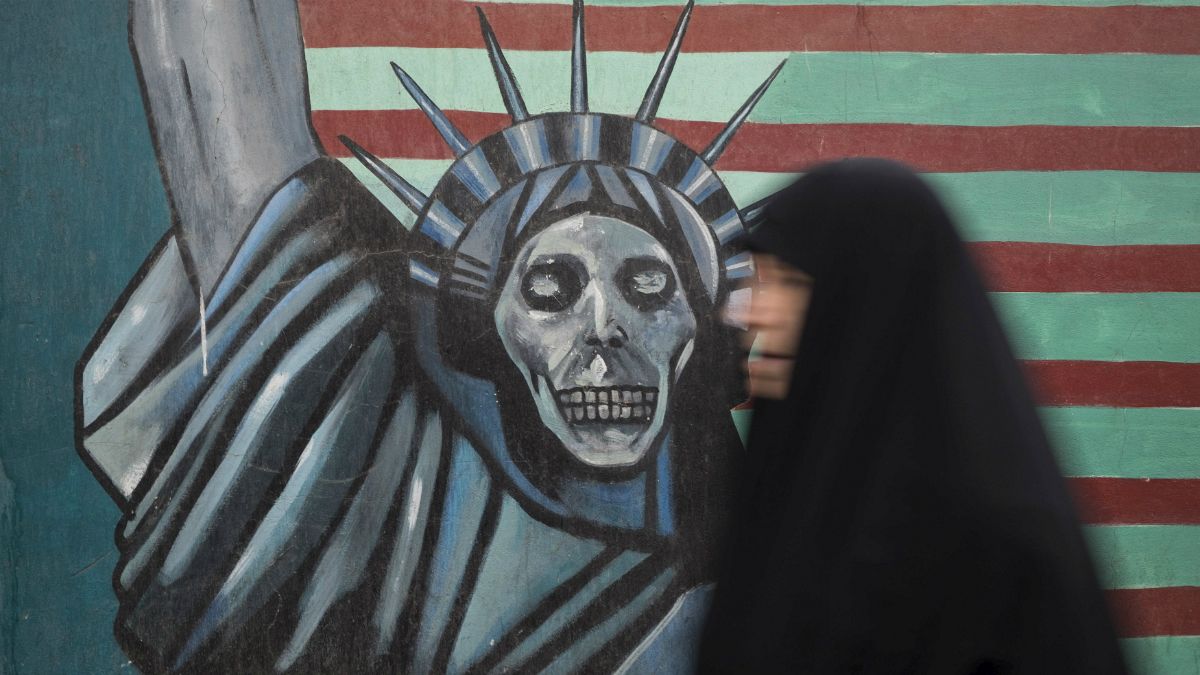On the 36th anniversary of the start of the US Embassy siege in Tehran, euronews takes a look at the state of relations between Washington and Iran
On the 36th anniversary of the start of the US Embassy siege in Tehran, euronews takes a look at the state of relations between Washington and Iran.
Is the reported rapprochement since the resolution of the nuclear dispute really happening? Or is distrust still prevalent? Euronews takes a close look at the situation.
The details
- When was the siege?
November 4, 1979
- What happened?
A pro-Khomeini student organisation occupied the US Embassy in Tehran, a “second revolution” according to the leader of the 1979 Iranian revolution.
- Who was taken hostage?
52 American diplomats and civilian workers were held for a total of 444 days.
- What did the hostage-takers want?
They demanded the Shah of Iran be handed over to the revolutionary forces controlling the country. Diplomatic relations between Washington and Tehran were at an all-time low.
The 1953 coup
The hostage-taking at the US embassy did not come out of the blue. Many in Iran had been suspicious about the US since the country’s 1953 coup, which ended with the overthrow of the government of Mohammed Mossadegh.
It was said by some that, with the help of the Iranian Army, the CIA had organised and guided Operation Ajax to undermine the democratic government of the day. Thanks to Washington, it was said, the Shah enjoyed a position of absolute power. Political and military rivals were executed in the wake of the coup.
Distrust of the US for many in Iranian society has become accepted in popular thought as the motivation behind the 1979 revolution. Pro-Khomeini supporters, nationalists, left-wing organisations like the Mujahideen and Marxists did not hide their hatred for what they saw as the US “imperialist state”.
Several months after the revolution got underway, the students occupied the embassy which they had nicknamed the “nest of spies”.
Relations frozen
Relations between Iran and Washington remained frozen for three decades. And, despite changes of government on both sides, the recent resolution of the nuclear dispute and high-level meetings between diplomats, commentators say the foreign policy of each remains essentially the same. Is distrust greater than the desire for reconciliation?
A “witch-hunt”?
Financial and diplomatic relations between Iran and the West are in the process of being normalised. But the conservative sector of the Iranian population still reportedly resists US influence. Outlining a recent clampdown on what are perceived as “foreign interests”, an article in the New York Times suggests the dream of a rapprochement between the two sides has no substance for the moment.
Journalists and writers arrested
Several journalists and writers have reportedly been arrested in recent weeks in Tehran, accused of committing crimes against the state. Film-maker Keywan Karimi, sentenced on Monday to six years in prison and 223 lashes, told Reuters ““My conviction is a message to the Iranian art community that nothing has changed after the nuclear deal,”
A Lebanese-American IT expert has also been arrested http://www.reuters.com/article/2015/11/03/us-iran-arrests-usa-lebanon-idUSKCN0SS1IR20151103
“The need for mistrust”- Khamenei
The Supreme Leader of the Islamic Republic, Ayatollah Khamenei, has justified maintaining the decades-long policy: “Even if one does not accept the logic of the Muslim (Koranic) struggle against the dominant power, we have to learn by history. The 1953 coup experience shows the need for scepticism about the US.”
There are clear concerns among hardliners about the potential for Western influence to increase in Iran, sometimes giving rise to confusion. A branch of a Turkish restaurant chain was closed down in Tehran a day after it opened after officials reportedly confused it with the US chain, Kentucky Fried Chicken
